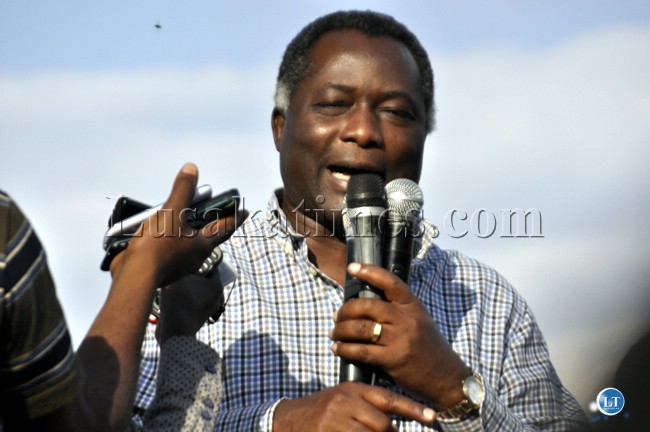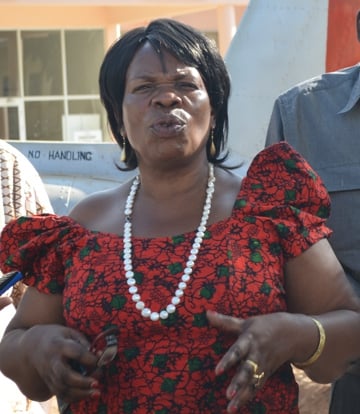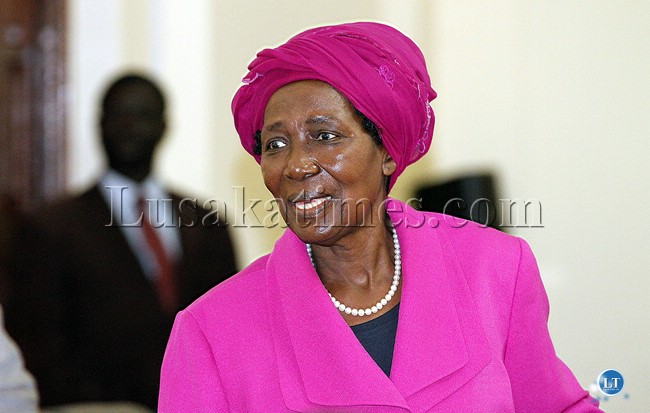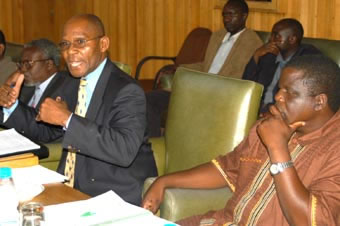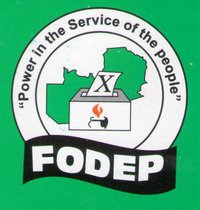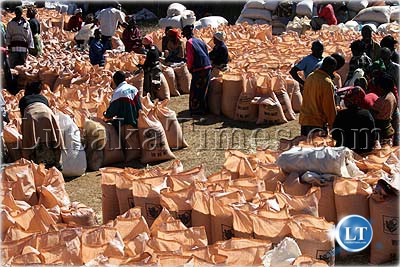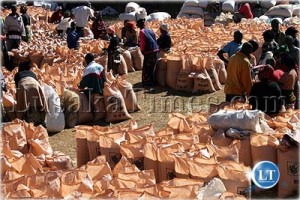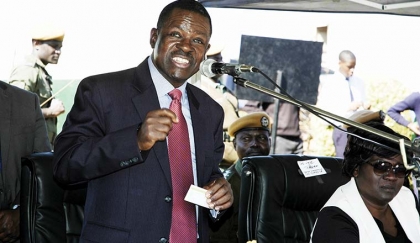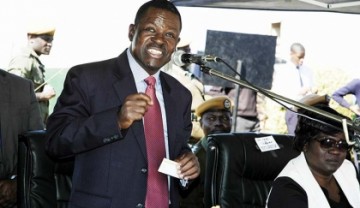An image of President Sata in Israel
Not once did I picture the president in the presence of Shimon Peres seeping kosher wine and laughing in chivalry. Nor did I envision him and his wife enjoying the serenity and basking in the ambience of Tel Aviv by the Mediterranean. I tried to visualize him touring Jerusalem, but not in the state he was before he left. The only thoughts that made a closer approach to truth were thoughts dumped on the base of my mind by speculators. They showed a critical president, intubated to a ventilator, with his doctor and family by his bedside. Yes, I had believed in them because I had not heard from him.
So, each time I retired to bed I feared for the worst. As soon as I awoke, I dashed to the stand to buy a newspaper or nervously accessed my computer for any hint of his condition. I didn’t believe a word Guy Scott and Mwansa Kapeya said. These two men were the reason a plague of speculation blanketed the entire nation. Incredibly, they swore by the Holy Bible to tell the truth “nothing but the truth, so help me God” and yet they turned out to be straight-faced fabricators and virulent propagandists who had made it impossible for the nation to send him roses and get well cards. They made it difficult for the clergy to conduct national prayers for him as he received treatment at Sheba Medical Center. Given a grain of power, I would charge them with the worst type of perjury in the land.
President Sata does not care
But of course the fault falls squarely on the president. It should mortify him greatly for not coming to our rescue; for not correcting the wrong impression created by his own cronies. For the two weeks he was gone, he left us gloomy and emotionally spent. Not once did he bother to taper our emotions, anxieties, fears, suspicions, and distress. He showed not an iota of love—not a word, not a picture. Like a heartless, insensible, selfish, and unloving father he forsook his subjects and cared less how we felt. This is his deadly weakness—lack of love. Another is lack of honesty. It is possible he is the one who ordered his confidants to give the impression all was well and his vacation was well deserved.
How can the president conceal his life from us? This is the same man who more than once rose from the ashes of defeat, persevered to the bitter end and won. He so badly wanted to become president he took the oath of office and vowed to rule with honor and dignity. The words “honor” and “dignity” are synonymous with love. It is on the pedestal of love and not power that presidents thrive. A president who loves his people will keep them well informed at every stage. When his health fails, he will release a press statement and let his people know the cause even if it is cancer or a heart defect. When he takes a vacation he will inform his people as to the exact location and when he would be returning.
Treating Zambians like kids
Not surprising, Sata has lived up to his PF slogan “Donchi Kubeba (Don’t tell them),” instituted by his vice president Guy Scott. The slogan is built on the principle similar to that of a pitiless father who does not tell his children what is going on around him. Sata treats us like kids who are yet to come of age and who cannot distinguish between right and wrong, truth and lie. He camouflages in the PF slogan to torture us mentally. Without our knowledge he can leave us with men skilled in lies, cover-ups, manipulation, and the machinations of power.
When we indulge in gossip and rumor mongering due to lack of credible information, he and his men employ threats and intimidation to suppress our right to speculate. He and his men punish us for their diabolical talk, dirty tactics, and blatant lies.
It is close to three years and this is how Sata has ruled us, with foul play and little honor. He has deteriorated in character and gained only contempt on account of his lack of love and respect for us. With stubbornness and concealment incomparable, he has impaired the veneration which is necessary to preserve our love for him, and instead, driven our country to where it is now—in a precarious state of uncertainty. It is his recklessness that in the past two weeks has made people become fearful of possible divisions and bloody battles within his PF party. Some have feared a revolution. And many others have, during this period, visualized a very dark future for Zambia ruled by unruly men.
Sata’s return has done nothing to beset rumours
Even when he has returned, he has not showed us love. Why? It is because insensate power has got the best of him. He does not care. He has mellowed in imprudence and dropped the little love left in him. It has become imperative for him to acquire as much power as will satisfy his life-time ambition. It is this unlimited power and not love that gives him prestige. That’s why he got into politics in the first place. It is in the presence of power that he breaks the laws of the land with no regard to the feelings of his people. He can capitulate on his responsibilities and sacred oath, abuse the instruments of power, and entrust our souls unreservedly to the demerits of other people. In as far as he is concerned, we are obligated to follow his orders, ask no questions, and love him even when he does not.
But President Sata must know that in the state he is, power is not, now, so important; love is. He needs our love more than before. The past two weeks of his absence have been a litmus test; a clear indication of where he is as a leader. He must now know that the power he is brandishing cannot open the gates to our hearts. During the period of his absence, millions of people, including some members of his family and close friends, showed little remorse. Some diverted their attention to succession while others didn’t care whether he lived or not. Now the underbelly of his party PF has been exposed and a possible rift is in the offing. Some of his own members fear he is preparing his son to succeed him and revile him for that. As I write, numerous ripples of negativity are floating through the heads of too-many-a-soul.
Zambians ready to love Sata if he reveals the truth
Now that he is back, the fiend Sata should sit on the balcony of State House and seriously reflect on his life. He must understand that the power from which he draws weakens with each passing day. It is therefore not the time to reflect on how to siphon as much money out of our poor souls. What will this matter when he is old and gone? He must instead reflect on the worst of the worst of himself; his most vulnerable self and ask himself several questions, among them: Am I being fair to the Zambia people? Do they really deserve this? What is wrong with telling them the truth? What is wrong with loving and respecting them? How do I serve as a role model for future leaders? What legacy do I want to leave?
Just like the King Cobra sheds its skin, he too must shed his unethicality. He must publicly proclaim his love for us. If he does, he will see how we shall open our hearts and love him with our inner-selves.
That’s who we are as a people. We are naturally meek, loving, and peaceful. Our ancestors ran away from the jingoistic rulers and found solace on the land that is our beloved country. Our parents taught us love. We love easily. If president Sata confronts his demons, goes on television and addresses us his people truthfully and with love, we will love him back, as simple as that. If, on the other hand, he fails to lift himself up and continues to bring us down—to lie, and keep us in perpetual distress, we shall not send him best wishes, but shall leave him to molder in solitude. It is with these words I pay homage to a president who has robbed our love for him. The past two weeks have been a tumultuous horrible ordeal, a deliberate one caused by one man. For that he gains no honor.


